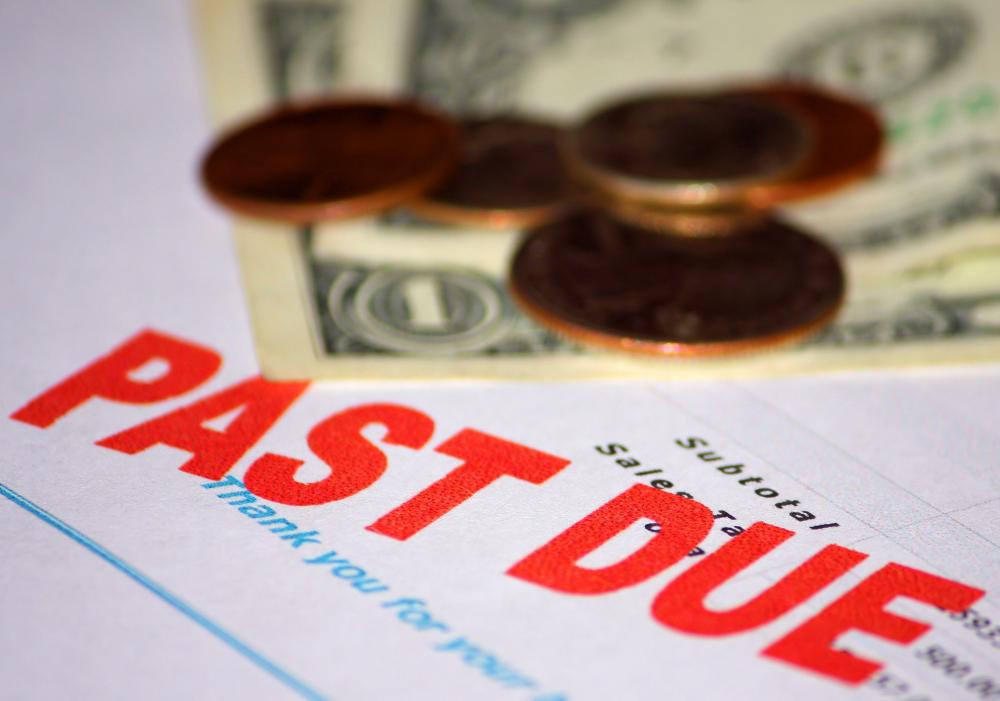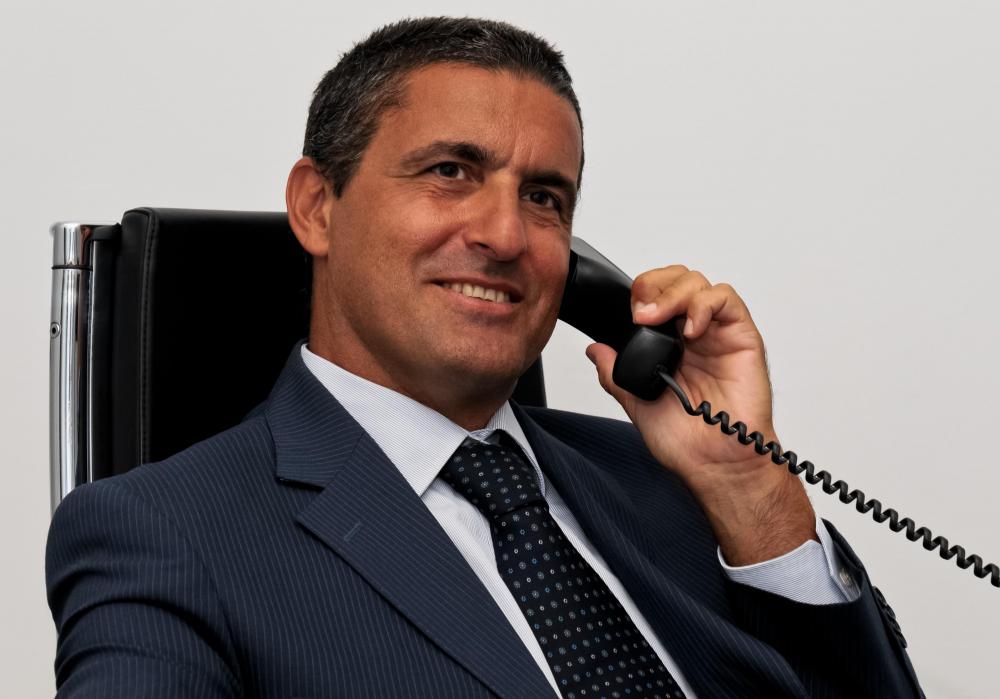At WiseGEEK, we're committed to delivering accurate, trustworthy information. Our expert-authored content is rigorously fact-checked and sourced from credible authorities. Discover how we uphold the highest standards in providing you with reliable knowledge.
What does a Debt Collector do?
A debt collector is a professional who is responsible for talking with people about paying money that they owe. Also known as bill, credit, or account collectors, they either work in the collections department of the company that is owed the money, or in a collection agency employed by the company to recover the overdue funds. Companies who are owed money are referred to as creditors, while people who owe these companies are referred to as debtors.
If the creditor is not able to procure payment from the debtor through normal billing procedures, the customer's account is sent to the debt collector. In some cases, instead of owning an in-house department that can take care of such debts, the creditor transfers the account to an independent, stand-alone company called a collection agency where debt collectors are employed. The collector, in either case, contacts the debtor via telephone or mail to find out the reasons for non-payment. A debtor can choose to dispute the bill, or expresses dissatisfaction in the goods or services rendered for it, in which case the collector can refer the debtor to the creditor's customer service department for resolution. If the bill is determined as fair or valid, however, it is the job of the collector to follow up with the debtor in the effort to ensure payment.

In cases where the debtor is willing to pay yet experiences financial difficulties and cannot pay the amount owed in full, the debt collector can arrange a payment plan. If the debtor continues to dispute the money owed and refuses to pay up, however, the collector can escalate the issue to an attorney to pursue legal action. In instances where the unpaid bill is for merchandise such as a vehicle, the debt collector can supervise repossession of such property. The collector also has to search for the debtor in the instance that he or she is no longer at the address listed, thus tracing them by checking for forwarding addresses at the post office. Tracing work might also involve calling a former workplace and residential phone numbers to interview former co-workers and neighbors concerning the debtor's whereabouts.
AS FEATURED ON:
AS FEATURED ON:














Discussion Comments
@Sunny27 - I understand what you are saying but there are a lot of debt collection agencies that become very aggressive and often cross the line into debt collector harassment. I think that the best thing to do if you are in a situation like this is to contact an attorney that specializes in collection cases.
They are experts in debt collector law and they can help you determine what your options are because in many cases these companies can garnish your wages so having an attorney helping you might make it easier to reach a settlement with the debt collection agency. I think that it what I would do if I was facing a problem with debt collector calls.
@Cupcake15 - I think that is good advice. I have to say that debt recovery will allow a person to move on with their life and not have that looming debt hanging over their head. When a debt collector calls it could feel like harassment but they are just doing their job.
I was reading that many companies sell their debt to third party collection agencies that try to collect debt from consumers. They make pennies on the dollar, but whatever they recover is gravy because most don’t expect to recover anything.
The people that do pay up make up for the others that didn’t which are why they can stay in business. I actually feel bad for these debt collectors because people can be really rude to them and they are just doing their jobs.
I think that working in the field of debt collection is really stressful because you are constantly dealing with people that are stressed about not making their payments and some of them must make the debt collector’s job even harder to do by avoiding their calls.
I have heard of stories of debt collectors calling people at work, but I don’t think that they are allowed to. I think they are only allowed to call your home and it has to be within a certain time of day. They can’t call you all hours of the night.
I think that when a debt collector calls you should be honest about your situation especially if you experienced some type of financial hardship like losing your job. I think that when dealing with debt collectors you should not give them access to your bank account and have them send you the bill in writing so that you can verify it.
You can also settle a loan with a debt collection agency for a fraction of the original bill, but again not only do you have to get this in writing before you send your money, but you also have to make sure that the account would be settled at that point and have them state this in writing so you have proof in case they try to go after you for more money.
I think that this is the best way to stop debt collectors calls.
Post your comments